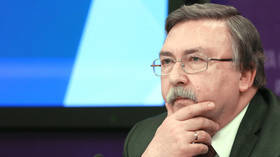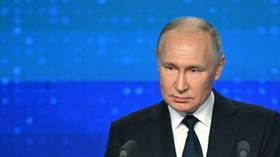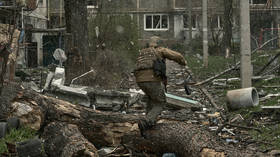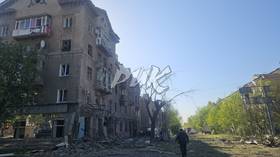NATO’s newest member ‘first to suffer’ in a conflict – Moscow

Finland’s geographic location would make it Russia’s first target in a hypothetical war with NATO, so Helsinki had undermined its own safety by joining the US-led military bloc, senior Russian diplomat Mikhail Ulyanov has argued.
The Nordic nation applied for accession after the conflict in Ukraine erupted last year, claiming that it needs mutual defense protection to deter a possible Russian attack. The move shattered the neighboring countries’ legacy of over 70 years of neutrality, which Finland maintained throughout the Cold War era, despite being a Western-friendly neighbor of the USSR.
Ulyanov, who represents Moscow at several Vienna-based international organizations, told RIA Novosti that he didn’t see Finland benefiting from NATO membership.
“Suddenly it became part of the alliance neighboring us. But if, God forbid, some escalation happens, Finland will be the first to suffer,” he suggested, while stressing that such an outcome is highly undesirable for Russia.
Finland joined NATO in April and went further this month, when it signed a bilateral security agreement with the US. Among other things, the treaty grants American troops access to military bases on Finnish soil. Ulyanov called it “a serious challenge” for Russia.
He noted that Moscow’s response to the increased threat on its western border included a revival of the Moscow and Leningrad military districts, which were previously abolished in 2010, during a period of relatively low tensions with the West.
The diplomat lamented the present poor state of the Russia-US relationship, which he blamed on Washington.
“I believe it is becoming increasingly obvious that the current [US] policy, which is based on the one hand on sending diplomacy into oblivion, and on the other hand on massive arms deliveries [to Ukraine] is not working,” he reasoned.
The US has been “the main beneficiary” of the Ukraine conflict so far, while EU nations, such as Germany, have suffered a lot from it, Ulyanov added. Brussel’s policy is dictated by Washington, he believes, and the situation is unlikely to change anytime soon.














